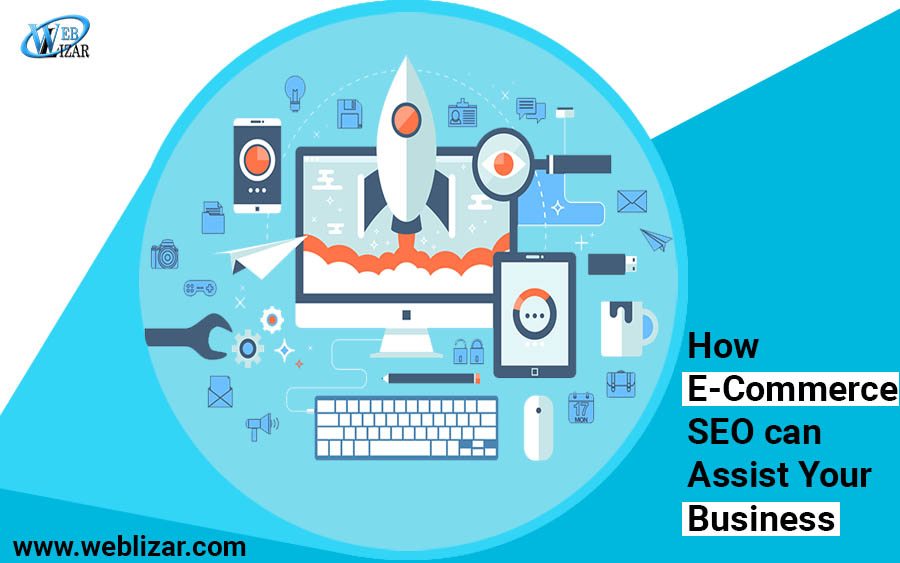E-commerce business owners often get confused with SEO since when we search on Google about SEO and E-commerce, there is an interesting term that sums up both the words into one meaningful word.
E-commerce SEO is not different from contextual SEO but it is specifically designed to make sure E-commerce website rank higher.
Let us study in depth about how can we utilize e-commerce SEO for our own benefit and get our desired rankings on search engines.
- KEYWORD RESEARCH
An effective SEO campaign always needs a good keyword research. Why?
Because keyword research informs every other SEO-related task you do on your website (for example, without keywords, it’s impossible for you to optimize your product and category pages).
Believe it or not, but your list of keywords influence your technical SEO efforts as well. For example, your site architecture and URLs need to take keywords into account.
So you can see that keyword research is a VERY big deal for your e-commerce site. Here’s exactly how to find untapped keywords that your customers search for and how to choose the best ones for your site.
- SITE ARCHITECTURE
This should be hierarchical in nature with Categories and Sub-Categories that are logical and easy to understand from a site visitor’s point of view.
They should also be consistent – there’s no use calling one category ‘Big Dog Collars’ and another ‘Collars for Small Cats’. You do, however, want to make sure that the name of your category, and therefore any internal links on your site, contain the keyword that you’re targeting.
Recommended Post: Some SEO Essentials You Must Never Miss To Gain More Traction
The best way to get this right is to start by going old school. Get yourself a pen and paper, do some warm exercises in your writing hand, and then start to lay things out. Begin with your top-level categories – the money terms that your potential customers are most likely to be looking for. Next, if you can, break each of these down into sub-categories. Be concise, but also descriptive. If you’re selling ‘Dog Coats’, say so – don’t just say ‘Coats’. This sounds really simple but you’ll notice time and time again sites that use overly generic terms as their category page titles.
- ON-PAGE SEO
Optimizing your website for organic search traffic is vital for your sales. Here are some numbers laying out the role search engines play in the online sales process:
- 44% of people begin shopping with an online search.
- Almost a third of e-commerce traffic comes from search engine results pages.
- 26% of online purchases came from organic search traffic.
- The top-ranked page in Google SERPs gets 5% of search traffic, almost double the share that goes to the second-ranked page. The top five pages get 75% of the traffic. The top 10 get 90%.
To put that in terms of dollars and cents, search engine traffic has a hand of about $150 billion in revenue and millions of unique users (82 million monthly users for Amazon alone). So if you want to compete you need to rank and rank highly.
- TECHNICAL SEO
Technical SEO is one of those things that are important for ALL site, but doubly so for e-commerce sites. That’s because e-commerce sites tend to have lots and lots of pages to manage. Even a “small” e-commerce site can have 5,000+ pages. And all of those pages increase the odds of technical SEO issues.
Not only that, but most e-commerce product pages don’t have a lot of backlinks pointing to them. That means that technical SEO is often the “tiebreaker” on Google’s first page. For example, if you and your competitor are neck-and-neck, a technical SEO issue can be the difference between the 5th spot and a coveted #1 ranking.
That’s why regular technical SEO site audits are considered an e-commerce SEO best practice.
Suggested Post: Secrets Of Business SEO Every Entrepreneur Must Know Today
- CONTENT MARKETING FOR E-COMMERCE SITES
Content in 2018 will be heavily focused on storytelling. As an e-commerce business owner, it’s your job to figure out what kind of stories you can collect and share with your audience. To find the right storytelling angle, ask yourself these questions:
- Who are my customers?
- What do they care about?
- What do they do in their free time?
- What values do they share?
- Who are their heroes?
- How do our products help them?
- What is our story?
- Why do we do what we do?
- Why should anyone care?
- What message are we trying to send through the stories we ultimately tell?
Try to focus in on one category when thinking about the stories you collect and share your content (example: adventure, wellness, love, kindness, etc.).
- LINK BUILDING FOR E-COMMERCE WEBSITES
As the e-commerce industry continues to grow at a steady average rate of about 10 percent each year, competition to get sales and exposure increases. That’s where link building comes in.
Link building is an effective way to gain more exposure and traffic to your website. Building links for e-commerce sites, in particular, can translate into more sales and return customers.
Link building is the process of attaining inbound links, or convincing sources on the Web to add hyperlinks to their websites that point to yours. Inbound links are a concern for businesses and marketers on the Web because they are one of the most important factors that impact search engine rankings, especially on Google. This gives inbound links the potential to significantly affect your business.
In order to understand the importance of link building, it’s worthwhile to revisit why links are important on the Web in the first place.

